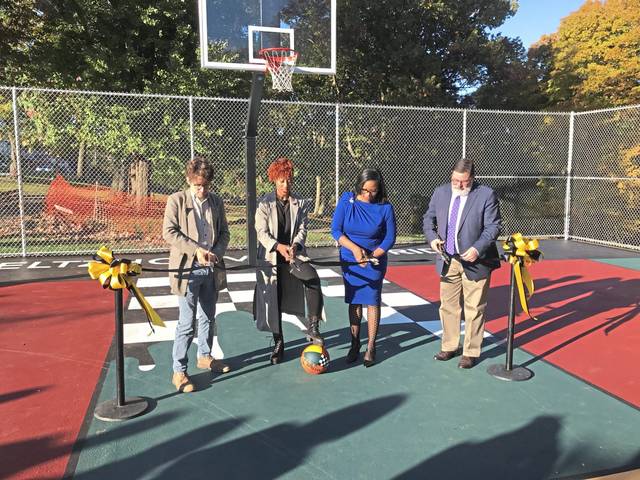Pittsburgh City Council on Wednesday scrapped a proposal to split revenue from a controversial parks tax evenly each year among the city’s nine council districts.
Council unanimously amended legislation sponsored by Council members Anthony Coghill and Deb Gross in the wake of growing concerns from other members about equitable distribution of funding for park improvements. In addition, a Law Department opinion said that the bill conflicted with the city’s Home Rule Charter.
Pittsburgh Mayor Bill Peduto, who supported the parks tax, opposed council’s legislation to split it evenly, according to spokesman Tim McNulty.
Coghill and Gross said they would work with other council members and the Peduto administration to craft new legislation that equitably funds park improvements across the city.
Gross said feedback from her constituents was divided on an even split of park funding.
“I think that’s the conversation. How do we do a good job at providing resources to the parts of the city and the people in the city who’ve been under-resourced?” Gross said. “And believe me — after 15 years of austerity — there are some areas of the city where really residents deserve the investments.”
She said the trick is to address park improvements in those areas while giving residents in more affluent neighborhoods an opportunity to lobby for improvements in their city parks.
Councilman Ricky Burgess, the most vocal opponent of dividing the tax money evenly among council districts, said the proposal was unfair because parks in poor neighborhoods have a greater need than those in more affluent communities.
“If something hits the table that’s inequitable, I’m going to speak it out; I’m going to call it out; I’m going to fight against it,” he said.
City voters in November approved a 0.5 mill property tax increase to fund park improvements citywide. The tax increase will cost property owners $50 for every $100,000 of assessed value and is expected to raise about $10 million annually. The money will be deposited into a trust fund and used exclusively for park improvements.
The Pittsburgh Parks Conservancy, which spearheaded the initiative, said city parks face a $400 million funding gap in deferred maintenance and an annual $13 million shortfall in maintenance funds each year. The conservancy said it planned to raise matching funds each year.
The conservancy’s plan is to spend $57 million on parks from 2020 to 2025, including $10 million on 18 parks in some of the city’s poorest neighborhoods. They include Baxter, McKinley, Spring Hill, Kennard, Ammon, Kite Hill, East Hills, Lewis, Albert Turk Graham, West End, Fort Pitt, Robert E. Williams, Vincennes, Granville, Jefferson, Sheraden and Townsend Parks and the Paulson Recreation Center.
Burgess said he supported the plan because it addresses parks with the greatest need.
“I don’t want anything new,” Burgess said. “I just want the city to do what it promised.”
Council opted to postpone a vote on new legislation for three weeks and after a public hearing is held.








